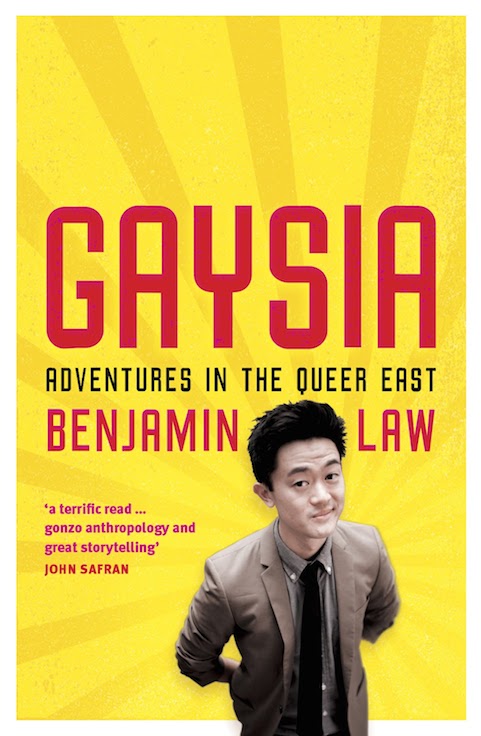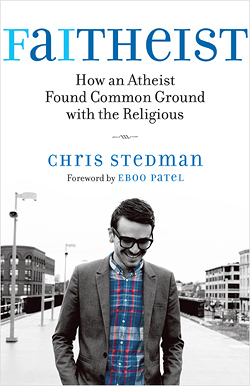 |
Journalist Benjamin Law is an Australian with Asian roots. In Gaysia, he takes us on a tour of Asia showing us all things gay across the continent.
Benjamin with his warm and engaging writers voice takes us to: Bali to meet the money boys and explore the cheap tourist destination; Thailand to see the world of trans Lady Boys in Miss Tiffany’s Beauty Pageant; China to interview gay men and lesbian women who often marry one another; Japan to explore the explosion of non-sexual Drag Queens on TV and the underground lesbian subculture; Malaysia to meet Christian and Muslim fundamentalists who claim they can cure homosexuality; Myanmar were HIV positive people are so poor that only one in five can get life saving treatment; India to interview people in the LGBT rights movement and to meet a man that claims he can cure homosexuality with yoga. |
Benjamin’s description is perfect, covering the sights, smells, sounds, tastes and sensations of each place and experience. This makes the reader feel that they are sharing his adventure from start to finish. Benjamin documents his observations and interviews well; but for the majority of the book he holds back from experiencing first-hand what it is like to be gay in the countries that he visits. Whereas it wouldn’t have been practical or appropriate in some countries, it would have been great to see Benjamin dressed as a Drag Queen in an attempt to get on Japanese TV. Benjamin does make up for this, by attending his first Pride in India in the final chapter of the book. It would have been pleasing if he had included some glossy photos in the book of places he’d visited and possibly people he’d met.
Gaysia starts with relatively light-hearted subject matter but quickly moves on to more heavy subject matter. Emotive subjects such as: the lack of civil rights, the lack of access to HIV medications and gay cures all gave a negative impression of being gay in Asia. But this is a real and honest account of what being gay in Asia means, and was usually told to him by the gay people of Asia he interviewed.
Gaysia is travel writing, but not a holiday guidebook. Instead it is a captivating in depth look at Asian societies, cultures and subcultures of the gay sexual minority group. Gaysia is educational, enlightening and a must read for anyone whose interested in travelling to the Asian continent to experience gay Asia or anyone who loves Asian culture, food or places.
Gaysia is available to buy on Amazon.
Review soon,
Antony




A great introductory article on candle magic :)
Hi Sofia, Thanks for the comment. I bought that in Glastonbury and he was a real find. I bought him…
Hi! I know this was posted ages ago and so a response may be rare but my dad has been…
Hi Ruth, Thanks for the comment. He might well have been. A x
Hi! Watching video and interviews with Charlie Watt, it had me wondering if he might have had Aspergers/ been on…